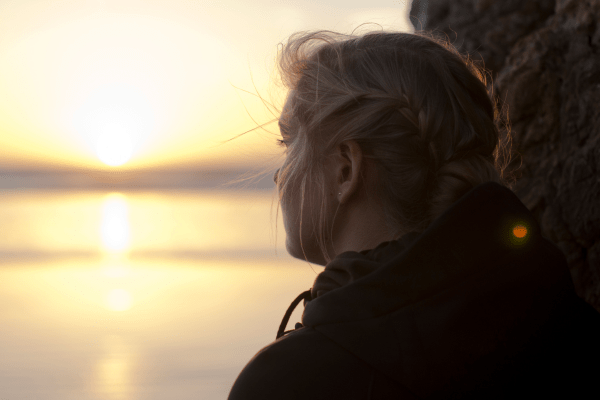
I always had the strange feeling that I was not like other girls; that I couldn’t do the things my friends could.
I had a hard time concentrating in school, yet could read a whole book in one day. It was like I couldn’t stop reading once I started. My grandma would tell me she was afraid I’d go crazy from all the reading, like Don Quixote did.
Some nights I’d get three hours of sleep, other nights I slept for fourteen hours straight. But no one seemed to notice.
Awkward Interactions
Relating to others when I was little was hard. I felt more at ease with adults because they would engage with me. Kids my age were harder to relate to; I couldn’t read their faces as well.
They couldn’t understand me, I thought. But the truth was, I had a tough time understanding them. I made good friends then, that I still have. Now I suspect they are also neurodivergent, and that’s why we clicked.
But I always kept a sort of distance back then. I held a fear that if they knew who I really was, they would not love me. So strong was my fear of rejection, I would avoid leaving the house for weeks.
When I became a teenager, my anxiety intensified.
For years, I coasted.
I had a tough time studying, yet always managed to get good grades. I never understood how I could be so clever in some things but then doing simple tasks, like deciding which chore to do first, would reduce me to tears.
If only I could be like my cousins, they’d say. Easy like them. Friendly like them. Uncomplicated like them. But as much as I tried, I never measured up.
In college, I floundered.
The structure of it was too difficult for me to navigate. I learned early on that I couldn’t have the same number of classes as my friends; that I had to do the minimum of credits or I’d start failing my classes. And I didn’t know why I was this way.
I just assumed I was dumber than everyone else; that I was not able, that things were just harder for me so there was no use trying to get help. That’s who I was, and there was nothing I could do about it, so why give it another thought? I graduated a year after my friends and didn’t go to the ceremony.
As life progressed, it got more complicated.
I married, had children. It was hard for me, but everyone said it was hard for them too, so I didn’t give it much thought. It always felt like I was living life in hard mode, but I thought that’s what being an adult entailed. Making friends, and keeping them, got much harder.
I was clinically depressed, my doctor decided, and was medicated for it. But the medicine would just make me tired, so I stopped taking it after a little bit. It didn’t change anything either.
I saw a few counselors, but no one saw anything different in me.
I was sad, and alone in a new country, with a partner who couldn’t understand why I couldn’t get up and do the things that the other wives were good at.
Back then I was easily overwhelmed and had panic attacks that I learned to conceal. Something was wrong, I could see it— but no one else did. I always felt like the odd one out. And I didn’t feel at home anywhere.
Then everything changed.
One morning in early 2019, my mom called me. “Your dad is sick,” she said. They didn’t think he’d make it longer than a few days. Being 2,500 miles away made travel difficult enough, and then a blizzard hit that night. I was not able to find a flight anywhere, and two days later I received the call that he was gone. I didn’t get a chance to say goodbye.
I booked a flight, and prepared myself for the hardest trip of my life. The pain I felt was so overwhelming, that I felt numb for weeks after that.
When I came back, I started thinking about my own life.
What I had done, the example I was giving my children. What would they remember if I died? That I was cleaning and stressed and never did anything creative anymore? What legacy was I leaving behind for them, even?
All my grief spilled over that day. I realized that the only one that could change how I felt was me. And I set out to do just that.
The first thing I did, was find a counselor that would work well with me.
I made it a point to figure out what was going on with me, so I made an appointment with a counselor. I started exercising regularly, and lost 30 pounds. I was slowly coming to the realization that I wasn’t happy in my marriage, but tried to repair what I could to hold our family together. After realizing my marriage was no longer serving me or our family well, my husband and I divorced.
An ADHD Diagnosis
One night, I was checking a new social media platform that my teenager recommended. I came across some people talking about ADHD, and realized that the things I did, and that I had always thought other people did, were not “normal.”
I asked my counselor, got tested, and then diagnosed with ADHD. That first month I felt so relieved— someone finally had listened. I started medication, and my life completely changed. Turns out that the study of this condition has advanced quite a bit since I was a kid. Women are much better at masking (pretending to be like everyone else) so we are harder to diagnose.
It turns out that the way I talk is considered hyperactivity, and it has nothing to do with how intelligent I am, or my level of physical activity. I just have a different kind of brain. I’m neurodiverse, and instead of fighting it— I’ve decided to embrace it.
Embracing What Makes Me Unique
Now I’ve started telling everyone I meet I have ADHD, trying to advocate for a more open conversation about mental health, to help others that might be suffering in silence. Like I did for so many years.
There’s a before and after for me. I love myself more now than I have in the last 40 plus years I’ve been on this Earth. I’ve learned to appreciate my special brain, to work with my limitations, to develop strategies to overcome my obstacles. Realizing I’ll always be different, I’ll always have this disability, but now I have the knowledge and power to work with it, not against it.
I’ve become truer to myself, more driven. Bold. Fearless, even.
I’ve challenged every thought I had of who I was, learned to love the real me, and started showing her to others. As a result, I’ve started being a better me, happier and more optimistic. Finding a job I love, one that I’m particularly good at. Meeting wonderful people who have become dear friends. I’m unapologetically and irrevocably in a road to being a better person— a better woman, a better mother, and a better friend.





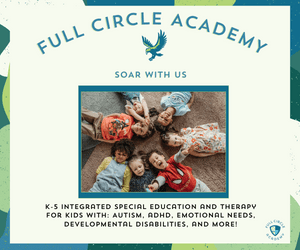
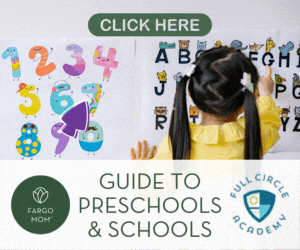



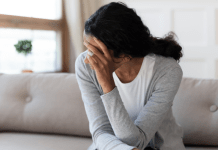

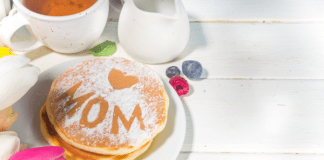




Thank you so much for sharing this! Though our stories differ, I had a similar experience. I was diagnosed as an adult in March of this year (in part thanks to a certain social media platform with videos about people like me as well!). It has made such an impact on my relationships, especially interactions with my kids. Thank you for boldly sharing your experience so that others are encouraged to share too. Knowing I’m not alone is a huge encouragement!